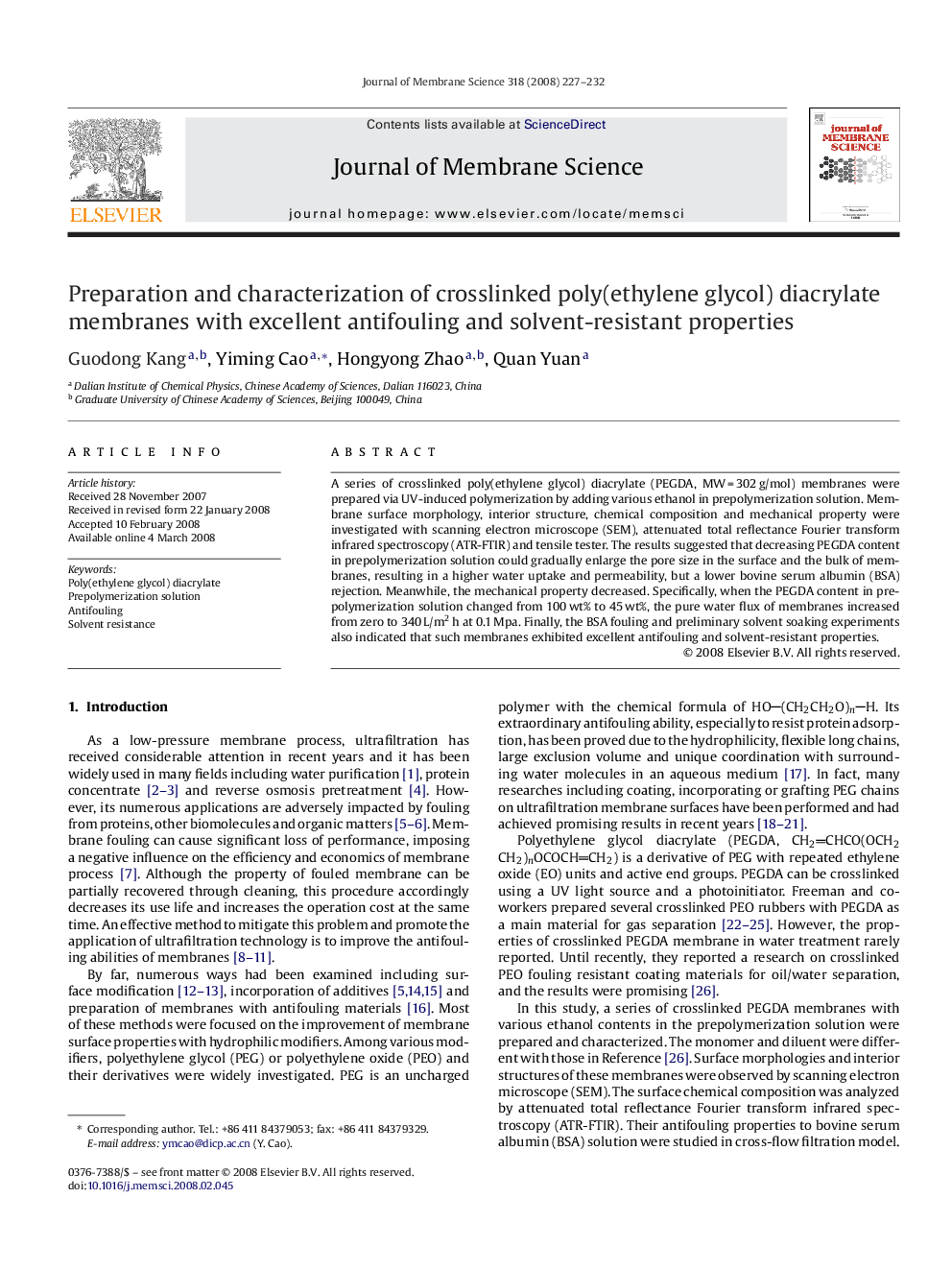| Article ID | Journal | Published Year | Pages | File Type |
|---|---|---|---|---|
| 637941 | Journal of Membrane Science | 2008 | 6 Pages |
Abstract
A series of crosslinked poly(ethylene glycol) diacrylate (PEGDA, MWÂ =Â 302Â g/mol) membranes were prepared via UV-induced polymerization by adding various ethanol in prepolymerization solution. Membrane surface morphology, interior structure, chemical composition and mechanical property were investigated with scanning electron microscope (SEM), attenuated total reflectance Fourier transform infrared spectroscopy (ATR-FTIR) and tensile tester. The results suggested that decreasing PEGDA content in prepolymerization solution could gradually enlarge the pore size in the surface and the bulk of membranes, resulting in a higher water uptake and permeability, but a lower bovine serum albumin (BSA) rejection. Meanwhile, the mechanical property decreased. Specifically, when the PEGDA content in prepolymerization solution changed from 100Â wt% to 45Â wt%, the pure water flux of membranes increased from zero to 340Â L/m2Â h at 0.1Â Mpa. Finally, the BSA fouling and preliminary solvent soaking experiments also indicated that such membranes exhibited excellent antifouling and solvent-resistant properties.
Related Topics
Physical Sciences and Engineering
Chemical Engineering
Filtration and Separation
Authors
Guodong Kang, Yiming Cao, Hongyong Zhao, Quan Yuan,
